


Much like Becky Chambers, who wrote an amazing article on the new Tomb Raider for “The Mary Sue,” I too had conflicting views with Lady Lara Croft. I was seven years old when I came across my first female role model (my mother aside), Lara Croft. Given my age, I didn’t really understand the plot of the original Tomb Raider. But what I did know was that I was playing a strong female lead for the first time. From Link, Mario, and Cloud I was always a man rescuing a woman or saving the world… or both. The concept of video games providing predominantly male protagonists never really hit home until I played as Lady Croft for the first time. She made me realize that woman can have a place in the gaming world, and that women were just as capable of saving the world as men were. Lara--as a character--filled my imagination. I bragged about getting to play the game at school and ran around the fields during recess pretending I was being chased by tigers. The school playground became the lost city of Atlantis. She was a girl, like me, and that was all I needed to know to idealize her in my head as a hero.
But as I grew older, my imagination was not enough to sustain Lara’s heroic traits in my head. She became one dimensional to me and I could no longer relate to her. Everything from the clothes she wore to her lack of emotional depth made me realize that I needed something else in order to revivify my childhood idol into an adult role model. Sadly, I began to look at Lara as an objectified male sex-symbol rather than a character meant to be cherished for her skills and personality. I continued playing the Tomb Raider games for the love of the puzzles and strategy, but my connection to Lara was gone.
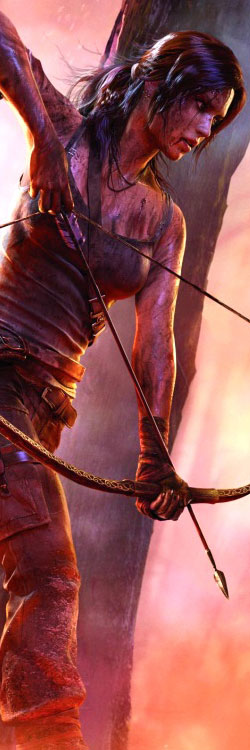 One summer’s eve, watching the E3 event for 2012, I saw her. Lara was covered in dirt and blood. She was bandaged up wearing relatively ordinary and practical clothing. Her voice was nervous, desperate, but also resonated with a defiant confidence. I knew this was the Lara I had been waiting for. She is a Lara that defines the complex dimensions of human emotion; a Lara that is flawed but still manages to face adversity. At that point I rushed out of the room and began doing research… this was going to be my game of the year. With my excitement, I was perplexed as to why many people appeared to be concerned with Lara’s origin story. Would it simply fit into the rape and revenge trope? Would Crystal Dynamics ruin one of the leading ladies in the gaming industry? Perhaps it is because I am an idealist, but I went into the game in full confidence that it would shine a new light on my old friend, despite the concerning trailers.
One summer’s eve, watching the E3 event for 2012, I saw her. Lara was covered in dirt and blood. She was bandaged up wearing relatively ordinary and practical clothing. Her voice was nervous, desperate, but also resonated with a defiant confidence. I knew this was the Lara I had been waiting for. She is a Lara that defines the complex dimensions of human emotion; a Lara that is flawed but still manages to face adversity. At that point I rushed out of the room and began doing research… this was going to be my game of the year. With my excitement, I was perplexed as to why many people appeared to be concerned with Lara’s origin story. Would it simply fit into the rape and revenge trope? Would Crystal Dynamics ruin one of the leading ladies in the gaming industry? Perhaps it is because I am an idealist, but I went into the game in full confidence that it would shine a new light on my old friend, despite the concerning trailers.
I will say that the story of the Tomb Raider reboot could have easily fallen victim to the rape and revenge trope, in which a female character is only empowered by a traumatic event that befalls upon her. However, in my opinion Lara’s characterization and development allow the game to dodge it with ease. When I first put in the game I was amazed at my immediate emotional connection to Lara. From the voice acting to the claustrophobic camera angles, I felt like I was living vicariously through her. Both her emotional depth and psychological strength were astounding to me. From the very beginning Lara is an empowering character who remains herself despite what she endures. While her character may evolve throughout her trails, I do not believe her strength is a direct reaction to what is occurring to her. In fact, her skills in extreme adaptability seem to be innate in her personality. It is not revenge that drives her, but the survival of herself and, more importantly, of her friends. Sure, Lara is rather violent towards her adversaries (and getting headshots with the bow is pretty great) but revenge is not something she is after. There are moments where Lara almost sympathizes with the lack of humanity left in her captors, questioning why they are doing the things they do and asking them to stop. She does not want to spill blood unless she has to… and obviously she ends up having to spill quiet a lot of it.
Lara expresses her own flaws in the guilt she feels towards dragging everyone into the chaos on the island in the first place. And we can also see more of her flaws through the fact that she is not loved by everyone in her group. While she is held in high regard by many, Reyes often expresses her annoyances with Lara’s actions. But by accepting her own flaws, Lara is not driven or “made better” by revenge, but through the sheer will to survive and the desire for redemption within the love she holds for others. She feels guilt, but that guilt fuels her and establishes her as a relatable character. She may feel angered at the men who are tearing her life apart, but who wouldn’t? Whenever Lara’s enemies ask her to give up and she replies “…not a chance you bastards,” I always find myself beaming in confidence and pride for what she has become. She may complain some about having to climb up a mountain, but she never complies; she is her own. Despite Roth’s warning against saving a pilot, she says that she has to; not because others want her to, but because she feels morally obligated on her own accord. Overall, Lara is terrified, exposed in her environment, and desperate. But she is also strong, confident, and merciless in her tenacity for survival. This is a Lara that cannot be objectified. This is Lara that is human. This is a Lara that I can idolize once more… and hopefully this is a glimmer of hope for female role models in the gaming industry for men and women alike.

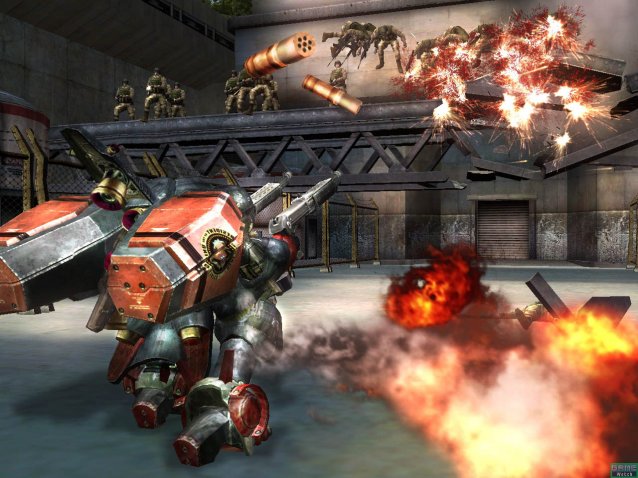
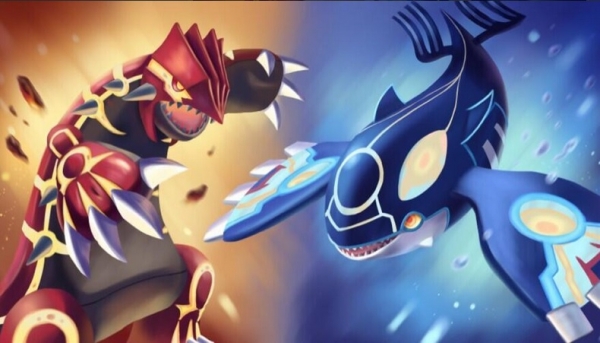

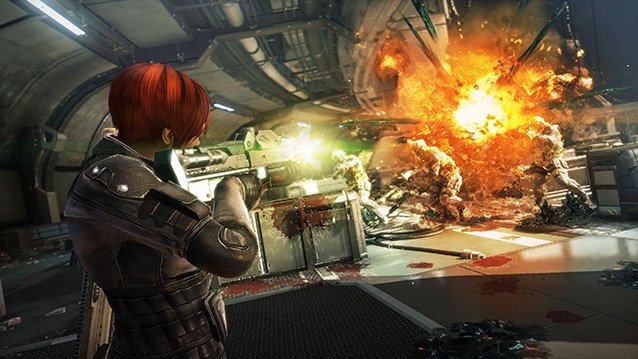 Fuse Review: Insomniac Abandons its Personality
Fuse Review: Insomniac Abandons its Personality Devil May Cry 4 Guide
Devil May Cry 4 Guide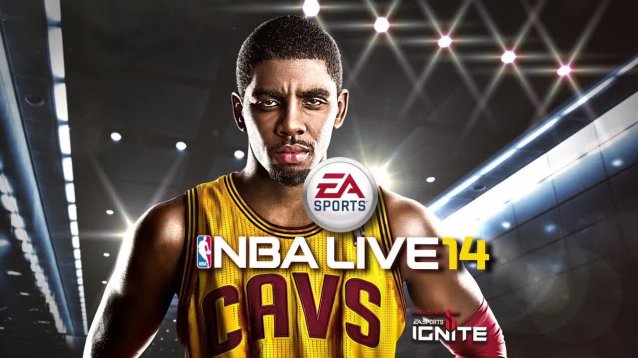 NBA Live 14 Review: A Missed Opportunity for a Solid Comeback
NBA Live 14 Review: A Missed Opportunity for a Solid Comeback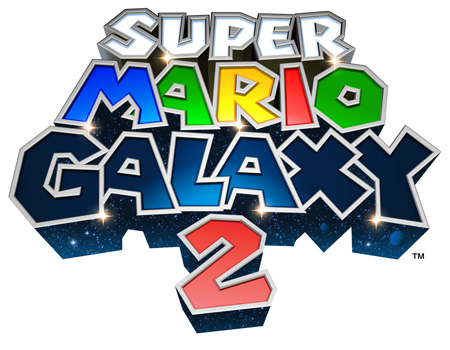 Super Mario Galaxy 2 Guide
Super Mario Galaxy 2 Guide Referee Ruby’s Guide to Treasure Trader
Referee Ruby’s Guide to Treasure Trader